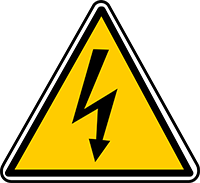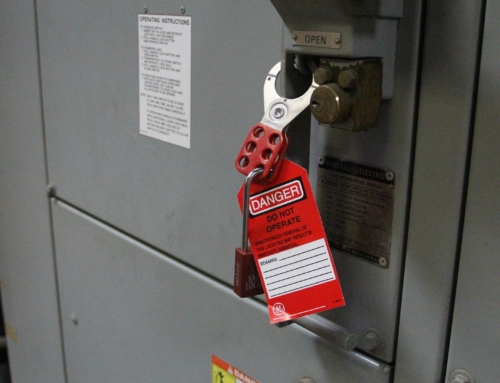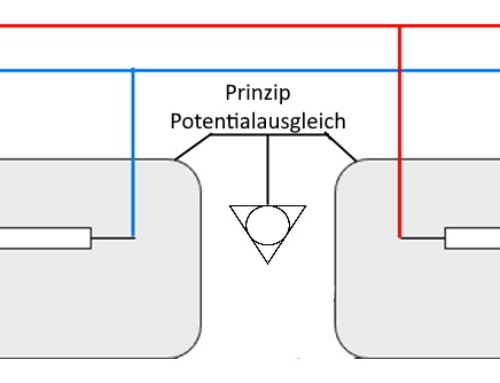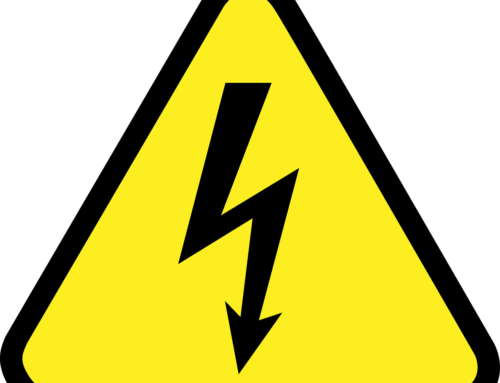Standards of electrical engineering are, of course, one of the classics in the specialist knowledge of the electrical specialist. In addition to the VDE standards, the VDE also provides us with the application rules and pre-standards.
But first things first; which (German) electrical specialist does not know it: the VDE!
Even though the VDE is sometimes incorrectly referred to in current literature as the „Verband der Elektrotechnik Elektronik Informationstechnik“ (Association for Electrical, Electronic & Information Technologies), the correct designation since 1998 has been „Verband der Elektrotechnik Elektronik Informationstechnik“ (Association for Electrical, Electronic & Information Technologies).
The tasks of the VDE are, according to its statutes, among others:
- the preparation, publication and interpretation of the VDE regulations,
- the implementation of the VDE testing and certification system and
- participation in the establishment, publication and interpretation of standards for electrical engineering, electronics, information technology and computer science and their applications.
In addition to the actual standards, the VDE also has application rules. The application rules are recommendations for action, which convey the current state of the art as well as a basic level of safety. These application rules are particularly interesting for new technologies and so-called dynamic markets, as they are available much earlier than the classic standards. While classical standards often go through a process of more than a year, application rules are usually available after only about three months.
The VDE application rules
There are several types of VDE application rules:
- VDE-AR-E belong to the working area of VDE DKE. DKE stands for Deutsche Kommission Elektrotechnik Elektronik Informationstechnik (German Commission for Electrical, Electronic & Information Technologies); the organization responsible in Germany for the development of standards, norms and safety regulations in the fields of electrical engineering, electronics and information technology. The VDE-AR-E are VDE application rules in which minimum requirements of electrical engineering are specified.
- VDE-AR-N are VDE application rules in which VDE and FNN jointly define the minimum requirements for power networks. FNN stands for “Forum Netztechnik/Netzbetrieb” and represents a VDE committee founded in 2008. The VDE-AR-N define criteria for the technology and operation of power networks. VDE-AR-N thus serve, as technical VDE application rules, the safe handling and operation of transmission and distribution networks.
- VDE-AR-M are VDE application rules for the medical field.
The VDE prestandard
In addition to the VDE standards and the VDE rules of application, an expert electrical specialist is also familiar with the so-called pre-standards.
To remember: The VDE preliminary standards (marked by “VDE V”) are the results of standardization work which, taking into account European framework conditions or due to collision with existing VDE standards, are not marked as finished standards by the VDE. A VDE prestandard must be reviewed for the first time after three years at the latest (thereafter once a year) to determine whether it can be converted into a standard. The development phase of a preliminary standard usually lasts between three and six months.
The knowledge of the difference between VDE standards, pre-standards and application rules belongs to the basic knowledge of a competent electrical specialist and is also mentioned in the course Maintenance of professional competence electrical specialist. More on the standards groups next time 😉
PS: Our recommendation here: There are also courses offered by various providers, such as the aforementioned “
Maintenance of professional competence of electrical specialist
” or the“Recurring instruction for the electrical specialist (annual instruction)”. More information about this can be found on our homepage
www.tcs-engineering.de
We offer various open seminars as well as customer-specific in-house seminars.
“Over!” and an ES must be called in. Thus, a NOT provided, i.e. free troubleshooting, may only be performed by an electrical specialist. The ESfdt should also be kept up to date on a regular basis. Attending a maintenance of professional competence course is definitely an option. However, we are also happy to provide you with specialized offers.
Our free(REALLY free, even WITHOUT having to provide an email address!) paper “5 Things You Must Have Clarity About Before Qualifying and Deploying Your Employees for Electrical Engineering Work.” can be accessed here (click).
If you would like to know more about the different roles, in particular those of the EiP, ES, CRES and especially those of the CRES and how they interact, I recommend our publications, for example the audio book “Die Verantwortliche Elektrofachkraft: CRES-Struktur und Betriebliche Elektrosicherheit für Unternehmer, Fach- und Führungskräfte”. Information and sources of supply can be found on the usual audio book portals as well as on the homepage tcs-engineering.de










Leave A Comment